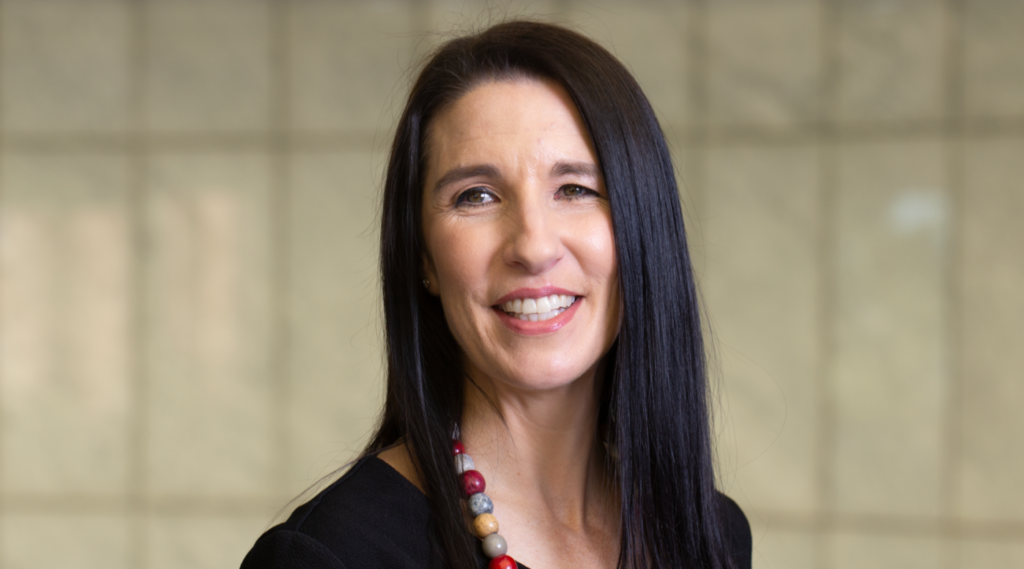Investec’s Marlé van der Walt: Tech and soft skills are critical to future proof yourself.
“Evolve or expire,” said Audrey Mbuyazi, business solution lead at Oracle, speaking at yesterday’s CFO webinar on remaining relevant in finance, together with Investec Specialist Bank CFO Marlé van der Walt.
Audrey emphasised that digital transformation is here to stay, and the most effective way to manage the adoption, involves helping the company’s people to adapt to the new normal by continuous upskilling to meet new demands.
She pointed out that during times of crisis, training and upskilling are often sacrificed to cut costs, and this is not productive for the company or the employee in the long run.
Employee well-being is also vital to make tech adoption successful. Happy people are generally more productive, and are likely to possess the right mind-set needed to evolve with the technology. She used an example of the time when University of Witwatersrand decided to implement the Oracle E-Business Suite.
“They took on EBS, and they started flying; however they had all these lecturers and professors, who were suddenly having to use this system to order things, and because they were not really tech-savvy, and they hadn’t really been using computers before, they were completely unhappy, and as unhappy users of the system, it literally almost made the project not be a success.”
Audrey said Oracle teams had to use their human connection to navigate tech resistant university staff members through the delicate transition of learning and integrating a new IT system into their regular workflow.
More recently, the South African Social Security Agency enlisted Oracle’s help to go digital. “We don’t know what Covid-19 will look like in 2021: we’re so used to a system where gogos are going to an office and filling out forms with somebody there. Now we want them to fill out their forms on their cell phones at home; most of them do have cell phones.”
Marlé said that when the Covid-19 lockdown hit in late March this year, Investec was faced with several mammoth financial challenges. It was financial year-end, and her team was under pressure to reperform year-end valuations and impairments, as well as rebudget and reforecast for the next three years – all over a two-week period.
Apart from a combination of cutting-edge, responsive technology and agile finance leadership to survive the “black swan” event, the incredible attitude from the team helped them meet the new demands. “I really can’t thank the team enough, the way they showed up and just took it and ran with it,” said Marlé.
The new virtual workplace has also created a new sense of camaraderie between staff and management, as they were challenged weekly to come up with digitally innovative ways to interact and stay connected in times of crisis. “On a Friday evening at six o’clock, we would have a meeting and a drink together, we would show each other we’d lit the braai, some people had comedy nights and even an online baby shower.”
Asked if this new virtual workplace had given birth to a happier work environment, both ladies conceded that a “best of both worlds” approach would be needed. Marlé pointed out that missing peak traffic had certainly brightened her day and saved time, but said that most people still longed for some physical interaction.
Audrey, who’d been working remotely since before lockdown, noticed that her online diary of commitments had suddenly ballooned from two to three video meetings per day, to eight. “Another massively understated disadvantage of back-to-back virtual meetings, is eliminating the five to 10-minute comfort breaks we would take if we were back in a traditional office situation, and we had to physically wake up and walk to the boardroom. Suddenly we’ve become human beings that no longer need bathroom breaks or coffee breaks, or to touch-up our lipstick,” said Audrey.
The era of social distancing and remote working has created a new precedent, in which everyone working from home, has to schedule ‘human-time’. For Marlé, it’s about making time for running, because it’s in this time on the road that she consolidates her thoughts. Audrey has blocked off 10-minute slots between meetings for comfort breaks, and timeouts from work for family lunch and dinners now that everyone is home.










